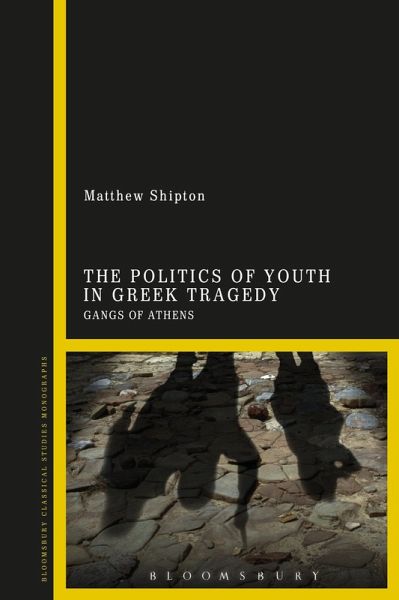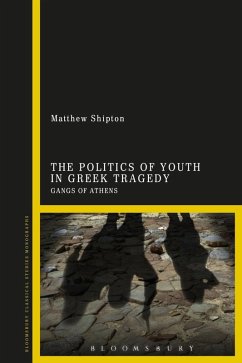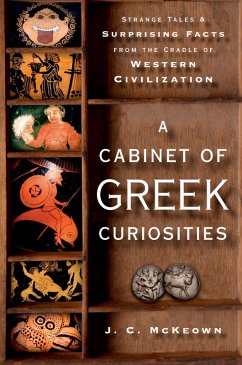
The Politics of Youth in Greek Tragedy (eBook, PDF)
Gangs of Athens
Versandkostenfrei!
Sofort per Download lieferbar
27,95 €
inkl. MwSt.
Weitere Ausgaben:

PAYBACK Punkte
14 °P sammeln!
This bold new set of interpretations of tragedy offers innovative analyses of the dynamic between politics and youth in the ancient world. By exploring how tragedy responded to the fluctuating attitudes to young people at a highly turbulent time in the history of Athens, Shipton sheds new light on ancient attitudes to youth. Focusing on famous plays, such as Sophocles' Antigone and Euripides' Bacchae, alongside lesser known tragedies such as Euripides' Heraclidae and Orestes, Shipton uncovers compelling evidence to show that the complex and often paradoxical views we hold about youth today can...
This bold new set of interpretations of tragedy offers innovative analyses of the dynamic between politics and youth in the ancient world. By exploring how tragedy responded to the fluctuating attitudes to young people at a highly turbulent time in the history of Athens, Shipton sheds new light on ancient attitudes to youth. Focusing on famous plays, such as Sophocles' Antigone and Euripides' Bacchae, alongside lesser known tragedies such as Euripides' Heraclidae and Orestes, Shipton uncovers compelling evidence to show that the complex and often paradoxical views we hold about youth today can also be found in the ancient society of classical Athens. Shipton argues that the prominence of young people in tragedy throughout the fifth century reflects the persistent uncertainty as to what their role in society should be. As the success of Athens rose and then fell, young characters were repeatedly used by tragic playwrights as a way to explore political tensions and social upheaval in the city. Throughout his text, Shipton reflects on how negative conceptualisations of youth, often expressed via the socially constructed 'gang' are formed as a way in which paradoxical views on youth can be contained.













